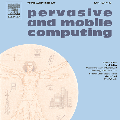Parametric model checking (PMC) computes algebraic formulae that express key non-functional properties of a system (reliability, performance, etc.) as rational functions of the system and environment parameters. In software engineering, PMC formulae can be used during design, e.g., to analyse the sensitivity of different system architectures to parametric variability, or to find optimal system configurations. They can also be used at runtime, e.g., to check if non-functional requirements are still satisfied after environmental changes, or to select new configurations after such changes. However, current PMC techniques do not scale well to systems with complex behaviour and more than a few parameters. Our paper introduces a fast PMC (fPMC) approach that overcomes this limitation, extending the applicability of PMC to a broader class of systems than previously possible. To this end, fPMC partitions the Markov models that PMC operates with into \emph{fragments} whose reachability properties are analysed independently, and obtains PMC reachability formulae by combining the results of these fragment analyses. To demonstrate the effectiveness of fPMC, we show how our fPMC tool can analyse three systems (taken from the research literature, and belonging to different application domains) with which current PMC techniques and tools struggle.
翻译:在软件工程中,在设计过程中可以使用PMC公式,例如,分析不同系统结构对参数变异的敏感度,或找到最佳系统配置。也可以在运行时使用,例如,在环境变化后,检查不起作用的要求是否仍然得到满足,或者在这种变化后选择新的配置。然而,目前的PMC技术对具有复杂行为的系统来说并不适当,而且比几个参数还要多。在软件工程中,PMC公式可以在设计过程中使用,例如,分析不同系统结构对参数变异的敏感性,或找到最佳的系统配置。为此,FPMC对PMC运行到\emph{fragment}的Markov模型进行分区,例如,在环境变化后,检查不起作用的要求是否仍然得到满足,或者在这种变化后选择新的配置。然而,目前的PMC技术对具有复杂的特性,而且比几个参数要差得多。我们的文件采用了一种快速的PMC(fMMC)方法,克服了这一限制,将PMC的实用性扩大到比以前可能的更广泛的系统类别。为此,FMPC对PMC的三种系统进行了分析,我们如何从FMMC系统进行不同的分析。





